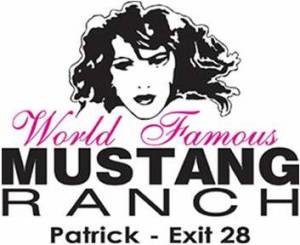
The 2003 eBay purchasers of Nevada’s Mustang Ranch have trademark rights in that mark, the Ninth Circuit has decided.
The court’s Sept. 4 decision affirmed the District of Nevada’s rejection of plaintiff David and Ingrid Burgess’ claim that L. Lance Gilman and the other defendant purchasers of the notorious brothel from the U.S. government in a tax foreclosure auction had failed to acquire rights in the mark because of abandonment through nonuse or an assignment in gross.
With respect to abandonment through nonuse, the court found:
“The government came forward with evidence sufficient to rebut the presumption of abandonment that arose from the approximately four-year period of non-use, and the Burgesses were unable to carry their burden of strict proof that the government intended not to resume use of the trademark. Portions of the evidence presented at trial, including the testimony of the former Department of the Interior Solicitor Alf Brandt regarding both the March 10, 2003 press release announcing the decision to demolish the brothel buildings and the initial unsuccessful eBay auction, led the district court to conclude that the government was actively considering the various interests and repeatedly reassessing its position going forward. The government’s conduct, characterized as indecisiveness by the district court, was held insufficient to strictly prove that the government intended not to resume use of the trademark and, in our view, this conclusion was not clearly erroneous.”
With respect to the alleged assignment in gross, the court found:
“The district court also properly rejected the Burgesses’ argument that the transfer of the ‘MUSTANG RANCH’ mark to Cash Administration Services, LLC was a prohibited assignment in gross. The goodwill associated with the ‘MUSTANG RANCH’ mark, which is necessary to its survival, was intact at the time of the assignment and was transferred to the Gilman entities which then continued to associate the trademark with similar services following the sale. … The brothel buildings were sold with the ‘MUSTANG RANCH’ mark at the second eBay auction and were representative of the goodwill of the business. However, this in no way leads to the conclusion that, absent the buildings, the sale would have been in gross. There is evidence that substantial goodwill existed at the time of the assignment, and the district court’s finding consistent with this was not clearly erroneous.”
The case cite is Burgess v. Gilman, No. 07-15093, 2008 WL 4112787 (9th Cir. Sept. 4, 2008).